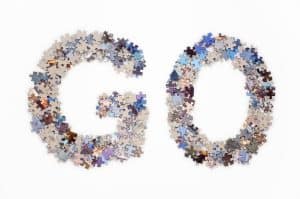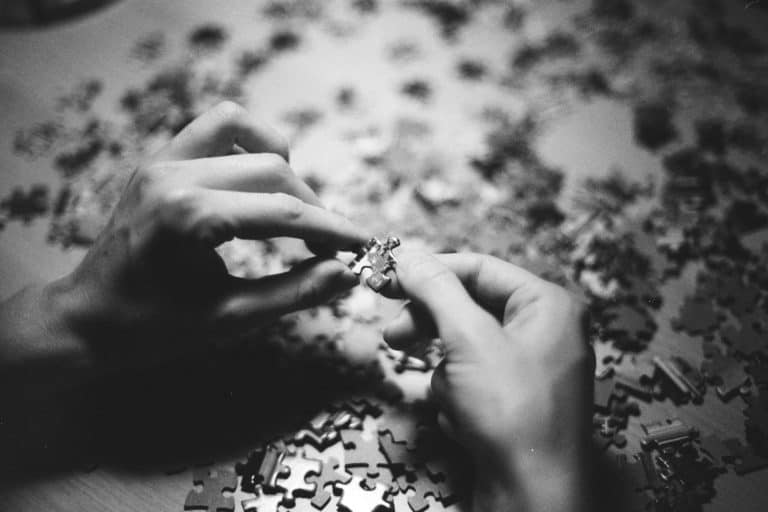National Jigsaw Puzzle Day, celebrated annually on January 29, brings puzzle enthusiasts and novices alike together in a shared appreciation for the joy of piecing together images and solving intricate puzzles. This special day, dedicated to the beloved jigsaw puzzle, invites individuals to celebrate the art of problem-solving, creativity, and camaraderie. As we delve into the fascinating world of jigsaw puzzles, crossword puzzles, and other mind-teasing activities, let’s explore the history, benefits, and diverse forms of puzzles that make National Jigsaw Puzzle Day a truly remarkable occasion.
The Origins: Inception of the Jigsaw Puzzle
The origins of the jigsaw puzzle can be traced back to the 18th century when cartographer John Spilsbury crafted the first jigsaw puzzle as an educational tool. He mounted a map on a wooden board and cut it into pieces, creating an engaging geography learning aid. Over time, these puzzles evolved, captivating people of all ages with their ability to challenge the mind and captivate the imagination.

Types of Puzzles: Beyond Jigsaw Joy
National Jigsaw Puzzle Day extends its embrace beyond traditional jigsaw puzzles to include an array of mind-bending activities. From logic puzzles to crossword puzzles and word search puzzles, there is a puzzle genre for every taste and preference. Sudoku, a number puzzle originating from Japan, and the iconic Rubik’s Cube, a three-dimensional combination puzzle, also add unique flavors to the puzzle-solving experience.
Problem Solving Skills: Unleashing Cognitive Abilities
Engaging in puzzles isn’t merely a pastime; it’s an opportunity to enhance problem-solving skills. Whether deciphering a crossword clue, strategically placing pieces in a jigsaw puzzle, or finding words in a word search, puzzle-solving sharpens cognitive abilities. It encourages individuals to think critically, analyze patterns, and develop a systematic approach to challenges—skills that extend far beyond the realm of puzzle-solving and are applicable in various aspects of life.
Memory Improvement: The Puzzle-Brain Connection
Solving puzzles, especially those that require memory recall, has been linked to cognitive benefits. As individuals commit to memory the patterns, shapes, and words within puzzles, they exercise their brain, potentially improving memory retention and recall. National Jigsaw Puzzle Day, therefore, becomes not just a celebration of fun but also an opportunity to nurture and enhance cognitive functions.
Social Connection: Puzzles That Bring People Together
While puzzles are often enjoyed as solitary activities, they also serve as social glue, bringing friends and family together. Puzzle parties have become a popular way to celebrate National Jigsaw Puzzle Day, with groups gathering to collaboratively tackle a challenging puzzle. The shared sense of accomplishment fosters bonds and creates lasting memories, making the day not only about puzzles but also about the joy of collective achievement.
International Puzzle Day: A Global Celebration
Beyond national borders, the love for puzzles transcends cultures and continents. International Puzzle Day, a global celebration observed on the same date, unites puzzle enthusiasts worldwide in a shared passion for brainteasers. It emphasizes the universal appeal of puzzles as a source of entertainment, mental stimulation, and a common language that knows no geographical boundaries.
From the New York World to the Digital Age: Puzzles in Transition
The history of puzzles includes noteworthy milestones, such as the crossword puzzle’s debut in the New York World in 1913. Fast forward to the digital age, where puzzles have seamlessly transitioned from newspapers and books to online platforms and mobile apps. Social media has played a pivotal role in connecting puzzle lovers, enabling them to share their achievements, seek advice, and participate in virtual puzzle challenges.

Fun and Learning: A Perfect Combination
National Jigsaw Puzzle Day isn’t just about solving puzzles; it’s about having fun while learning. Puzzles introduce individuals to new words, challenge them to think differently, and provide a platform for continuous intellectual growth. The fusion of fun and learning is a hallmark of this special day, making it a unique and enjoyable experience for people of all ages.
Encouraging the Mind: Puzzles During the Great Depression
During the Great Depression, puzzles gained even more popularity as an affordable form of entertainment. Families facing economic challenges found solace and joy in assembling puzzles, turning them into a shared activity that provided relief from the hardships of the time. National Jigsaw Puzzle Day pays homage to this historical connection, reminding us of the resilience and creativity that puzzles can inspire during difficult periods.
Puzzle Trends: Beyond Jigsaw Pieces
In the modern era, the world of puzzles has expanded to include a plethora of options. From escape room puzzles that challenge participants to solve a series of interconnected puzzles to innovative augmented reality puzzles that blend the digital and physical realms, the puzzle landscape continues to evolve. National Jigsaw Puzzle Day encourages enthusiasts to explore these new frontiers and discover the joy of solving puzzles in innovative ways. For those interested in the benefits of engaging with puzzles, Jigsaw Puzzles for Critical Thinking can offer valuable insights.
Wrap up: National Jigsaw Puzzle Day
As we celebrate National Puzzle Day, let’s reflect on the diverse and enriching world of puzzles. Whether you’re a seasoned puzzle enthusiast or a novice eager to embark on this engaging journey, the day offers an opportunity to appreciate the art of problem-solving, the joy of collaboration, and the cognitive benefits that puzzles bring. So gather your puzzle pieces, invite friends to a Jigsaw Puzzle Assembly Party, and let the celebration of National Jigsaw Puzzle Day unfold as a testament to the enduring appeal of these captivating brainteasers. For tips on making the most out of your puzzle-solving experience, Jigsaw Puzzle Size Consideration is a useful resource.
Engaging with puzzles can also foster Family Bonding, creating shared experiences and strengthening relationships. And if you’re curious about the mental health benefits of puzzles, exploring Do Jigsaw Puzzles Help with Depression? can provide additional insights.

